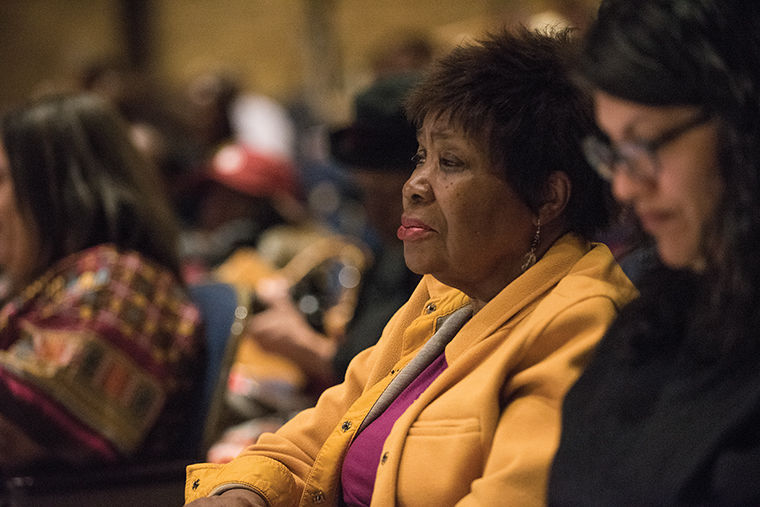Obama library could cause South Side gentrification
Beatrice Watson said she fears the Obama Library development will raise the neighborhood property taxes and push her out of her home.
April 21, 2017
The new Obama Library’s construction has caused concern from Hyde Park residents, who at an April 18 community meeting said they are afraid it will drive them out of their homes.
“We all know what happens when something new comes into a community,” said Jeanette Taylor, a member of the Obama Library South Side Community Benefits Agreement Coalition, which has been meeting since August 2016 to address concerns about the development. “They kick out the people who have been there dealing with the problems and the lack of support for years, and they make [the neighborhood] new for somebody else.”
Beatrice Watson lives in a retirement home across from Hyde Park Academy High School, 6220 S. Stony Island Ave., where the coalition met with residents.
She explained that she was skeptical about how the building would be built and its effect on the neighborhood.
“Anything they put into black communities becomes a joke because it is there as a facade,” said Watson.
The residents suggested the coalition demand a community benefits agreement from the Obama Foundation—a legally binding contract between a developer and a community—that describes the project and how it will contribute to the community.
The provisions should include a commitment to affordable housing, a provision for tax money from the library’s development to be allocated toward public schools in the neighborhood and a plan for training locals to assist in the library’s construction.
The coalition also seeks free after-school programs for Chicago Public Schools students and a “green infrastructure master plan” with a focus on increasing, updating and maintaining maximum “green space,” as reported Jan. 30 by The Chronicle.
The library will be constructed on 21 acres in the Woodlawn neighborhood, which Taylor said could support economic development similar to Hyde Park.
“Woodlawn is the forgotten-about community, and the library coming would bring some of the much-needed resources,” Taylor said.
Residents need to collectively press these locally beneficial principles onto influential groups including the Obama Foundation, the University of Chicago and the city, said Naomi Davis, a founding member of the Bronzeville Regional Collective, a nearby neighborhood organization.
She added that in addition to obtaining a legally binding agreement for residents, the focus should be on developing black-owned, neighborhood-owned and locally owned businesses in the area, and forming a beneficial relationship with schools.
“Our needs [are] to have the city work with us to ensure a commitment to community driven [and] controlled development,” Davis said. “Hear us roar. We are not going [anywhere].”
Taylor said she would like the Obama Foundation and other officials support the coalition in the same way the community supported Obama’s presidency.
“Obama should do right by the people who supported him, do right by the city where he came from and really support this effort,” Taylor said.








